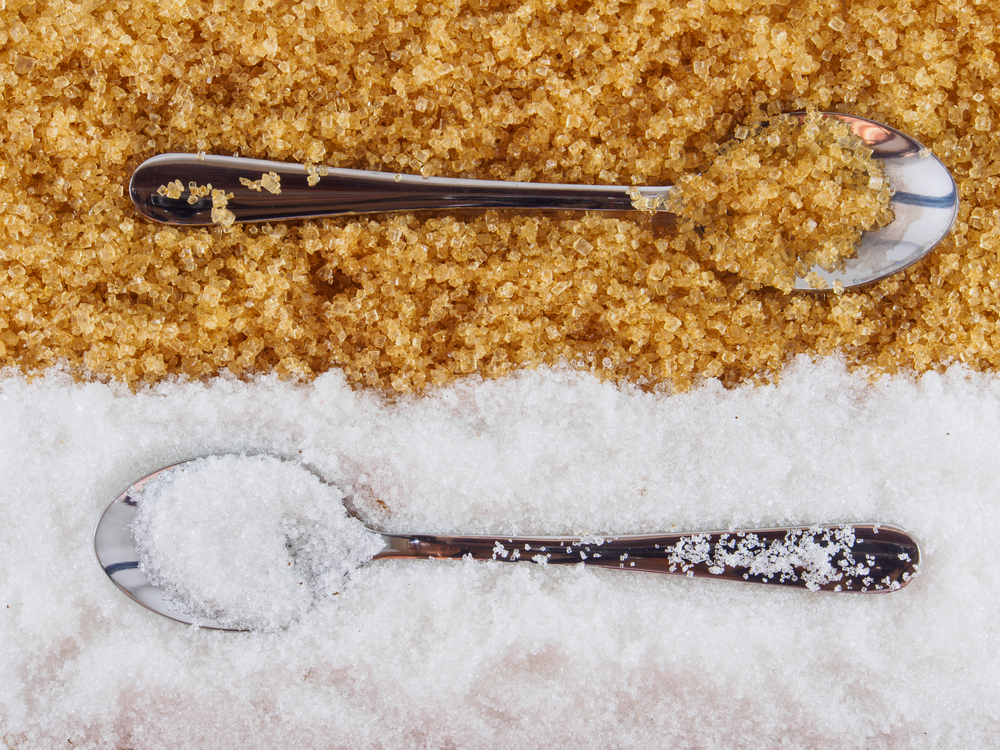
08 May White Sugar vs. Brown Sugar
Most people assume that darker foods are healthier for us. If you have at any point made a conscious decision to eat healthier, you’ve probably found yourself choosing whole wheat over white flour, brown over white rice, etc.. The idea is that the darker foods are “whole foods”, meaning they are less processed and therefore:
A- Whole foods contain complex carbohydrates (digested slowly, providing steady energy), while refined white products contain simple carbohydrates (digested rapidly, spiking fat storing hormones).
B- Whole foods contain more nutrients that are lost in the processing of white foods.
C- Whole foods are better for weight loss/management, since your body can’t pull as many calories from them. (i.e. If you eat a slice of white bread with 100 calories, your body will likely store most, if not all, of those calories. However, if you eat a slice of whole wheat bread, some of those calories may be lost in digestion.
While this is true for foods such as bread, pasta, and rice; you may be surprised that SUGAR is a very different story. Let’s take a look at the different forms of sugar.
White Sugar is produced from sugarcane or sugar beets, and is 100% crystallized sucrose. The processing and filtering leaves behind a brown mixture, which is further refined into a product called molasses.
Brown Sugar is white sugar mixed with molasses. The added in molasses is what gives brown sugar its color, as well as its richer taste.The difference between light and dark brown sugar is simply the amount of molasses added in.
Raw Sugar is the original sugar crystals extracted from sugarcane or sugar beets before they are filtered, refined, and bleached into white sugar. Raw sugar is commonly confused with brown sugar, however one is significantly more refined than the other.
So what are the nutritional differences between these 3 types of sugar?
Nothing.
The calories are almost identical (we’re talking maybe a 1 calorie difference) and there is such a minute difference in nutrients that it is considered insignificant.
Bottom line:
All sugars are processed. Some are more processed than others, but does it matter? Certainly not from a fitness standpoint. So if you prefer the taste of white sugar to brown sugar, go for it; and vice versa. Personally, I like to use brown sugar whenever possible, since its sweeter taste allows me to use significantly less of it.
Sugar is sugar. Reducing your sugar consumption will do you wonders. Switching your sugar form? Unfortunately, not so much.


